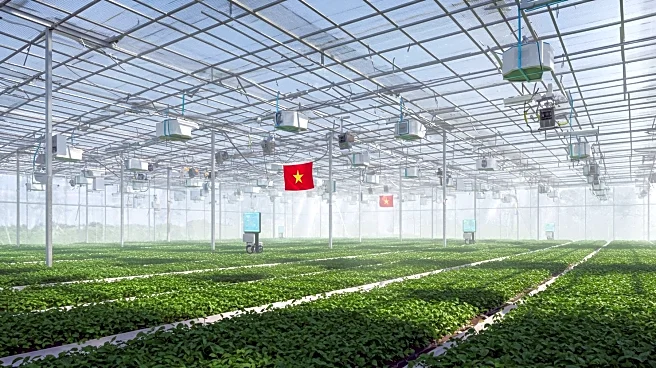What's Happening?
AgriS is spearheading efforts to enhance high-tech agricultural cooperation between Vietnam and Australia. The initiative involves strategic partnerships with authorities in Tay Ninh province and Queensland state, aiming to build a green, smart, and sustainable agriculture sector. AgriS integrates agricultural technology, food technology, and fintech under environmental, social, and governance principles. The company boasts a circular agriculture ecosystem with extensive sugarcane and coconut raw material areas across Vietnam, Laos, Cambodia, and Australia. AgriS is developing the Agritech Hub platform to drive technology transfer and commercialisation between Australia and Southeast Asia.
Why It's Important?
This cooperation is crucial for advancing sustainable agricultural practices and ensuring food security in both Vietnam and Australia. By leveraging high-tech solutions, AgriS aims to improve agricultural productivity and resource management, which can lead to increased economic growth and stability. The initiative also strengthens trade relations between the two countries, potentially opening new markets and opportunities for agricultural products. The focus on sustainability aligns with global efforts to address environmental challenges and promote responsible resource use.
What's Next?
AgriS plans to continue expanding its partnerships and technology transfer initiatives, with potential collaborations in drone farming technology and high-tech agricultural equipment. These efforts are expected to enhance agricultural efficiency and sustainability, paving the way for further integration into the global food and beverage value chain. The company will also focus on diversifying its product offerings and enhancing chain value through strategic investments.
Beyond the Headlines
The collaboration between Vietnam and Australia in high-tech agriculture highlights the growing importance of international partnerships in addressing global food security challenges. By sharing knowledge and technology, both countries can benefit from improved agricultural practices and innovation. This initiative also underscores the role of private companies in driving sustainable development and fostering cross-border cooperation.










